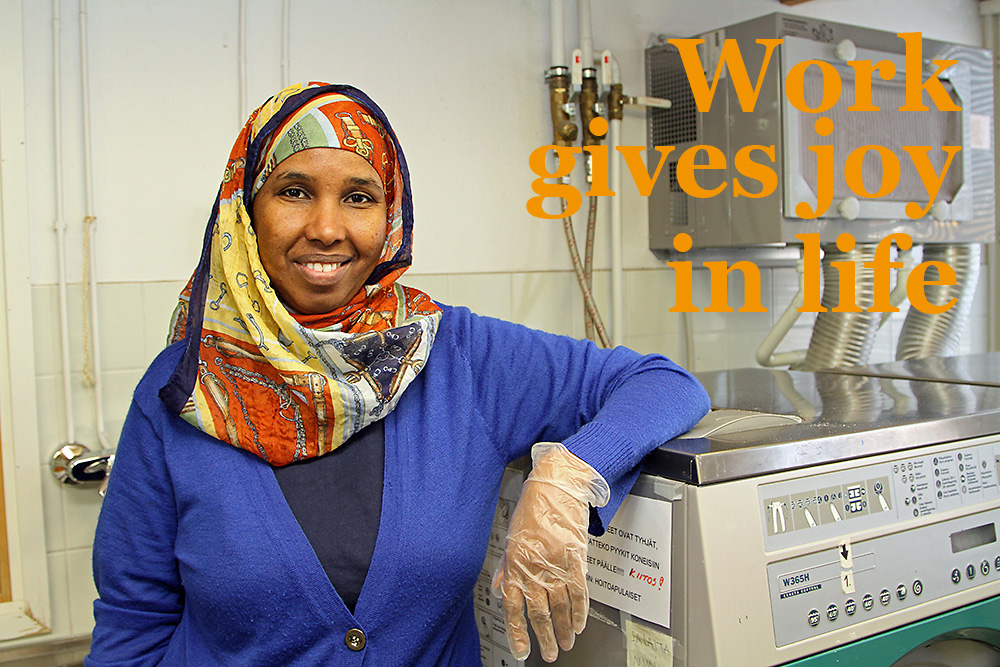
By Päivi Arvonen
After moving from Somalia to Finland in 1995, Musa Said stayed at home for more than 10 years. Her lack of Finnish language skills and long stay at home were more depressing to her than the darkness of the Finnish winter. Now Said is happily working as an assistant at an elderly centre and wants to learn more Finnish.
A woman is busily assorting clothing and linen in the laundry room of the Kannelmäki elderly centre.
“I enjoy my work and very much like it here. This is now the best possible workplace for me,” Musa Said explains in fluent Finnish.
Said has worked at her current workplace for 6 months.
“The employment office told me that my Finnish language skills wouldn’t be sufficient for employment, but I’m doing fine!”
The silent people of a cold country
Said wants to learn to speak better Finnish. She tries to improve her Finnish by using it as much as possible. But it is not always easy to find people to speak with.
“The Finns are very quiet. I was nearly shocked to find out that no one speaks even on a train full of people,” Said says.
Said, who hails from Somalia, lived in Tanzania for two years before moving to Finland.
“In Tanzania, I learned the local language Swahili in two years, because people speak to each other a lot. In Finland, I hardly learned any Finnish in more than 10 years!”
Apart from the silence, it was very hard for Said to get used to the dark and cold winter.
“The autumn and winter are always stressful for me. As the days get shorter and shorter in the autumn, I easily get depressed. The summer is the best time in Finland.”
Over the years Said has learned to understand that the Finnish silence is not anger or rudeness.
“The Finns have a warm heart, even if they don’t speak much.”
Excited about language studies and work
Said came to Finland in 1995. Her three children were all born in Finland. The youngest of them is 14; the oldest is 19. Said was a stay-at-home mother for more than 10 years and some of that time a single parent.
“I was exhausted from taking care of small children. I tried to learn Finnish, but it didn’t work out,” she recalls.
Over 6 years ago, after spending 13 years at home, Said wanted a life change.
“I decided to do something different. I realized that I would have to learn Finnish if I wanted to work. Finnish is not difficult if you want to learn it. But you only learn it by trying,” Said says, speaking from experience.
Said has also realised that you cannot understand Finland and the Finns without knowing the language.
“Before 2008, I wasn’t in the least interested in learning the language, although the employment office tried to force me to take a language course.”
Said studied Finnish while the children were in school, and she also studied cleaning at the Amiedu adult education centre. She has freelanced both in cleaning and in elderly care. She found her permanent job at the Kannelmäki elderly centre through the PosiVire social enterprise.
Dreaming about returning to Somalia
Said now feels at home in Finland and in Helsinki.
“Helsinki is a good place for foreigners. There is much more racism in smaller cities and towns in Finland. I have heard racist remarks, but I don’t care about them and only think that a racist or aggressive person has a lot of problems,” Said says.
Said appreciates all the support she has received in the country and the safety in Finland.
“When I grow old, I want to go back to Somalia. You get no support from the government there, but you can always turn to friends and relatives for help.”
Translated by Johanna Lemola


